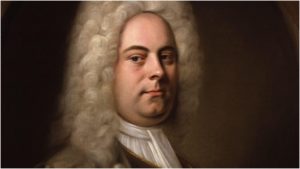
Composer Profile: George Frideric Handel, The Baroque Master Of Opera
By David SalazarWhen it comes to baroque opera, George Frideric Handel is the go-to composer.
Born on Feb. 23, 1685, Handel worked as a composer in Hamburg and Italy before eventually making his way to London where he would become a prominent figure.
He set up three commercial opera companies in London and wound up composing a whopping 42 operas between 1705 and 1741. His first opera was “Almira,” which premiered in 1705. His seventh opera, “Rinaldo” was the first to premiere in London; he would have all of his other works premiere in England, including many of his more renowned works. His final opera “Deidamia” would premiere in 1741. After the success of the Messiah in 1742, Handel stopped composing opera altogether.
He would also become a prominent composer of oratorios and anthems, and these works, in many ways, remain more popular than his operas.
He died on April 14, 1759 a very wealthy and beloved artist.
Signature Works
Many of Handel’s operas have found their way into the standard repertory throughout the 20th and 21st century, including “Giulio Cesare,” “Alcina,” “Rinaldo,” “Serse,” and “Ariodante.” A number of other works, including “Tamerlano,” “Agrippina,” and “Rodelinda,” among others have been performed regularly.
The “Messiah” is likely his most famed piece, and his “Zadok the Priest,” which was composed for the coronation of George II, has become a fixture at every British coronation since.
Read More on Handel
Five Operas That Deserve More Presence In the Repertory
Interview With Bass Andrea Mastroni On His Handel Album
Watch and Listen
Here is a performance of “Alcina.”
And here is a full performance of “Giulio Cesare.”
Categories
Opera Wiki

